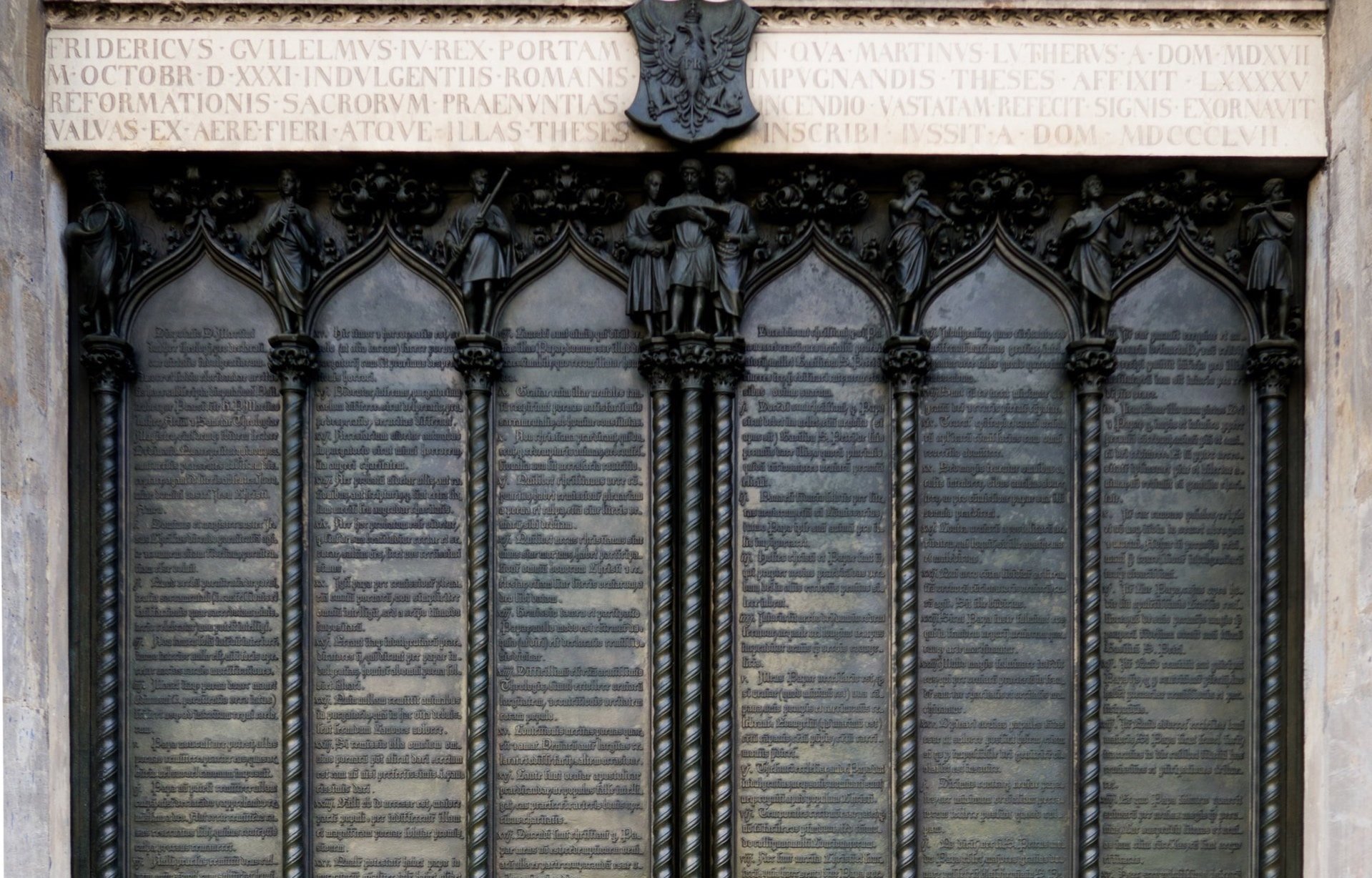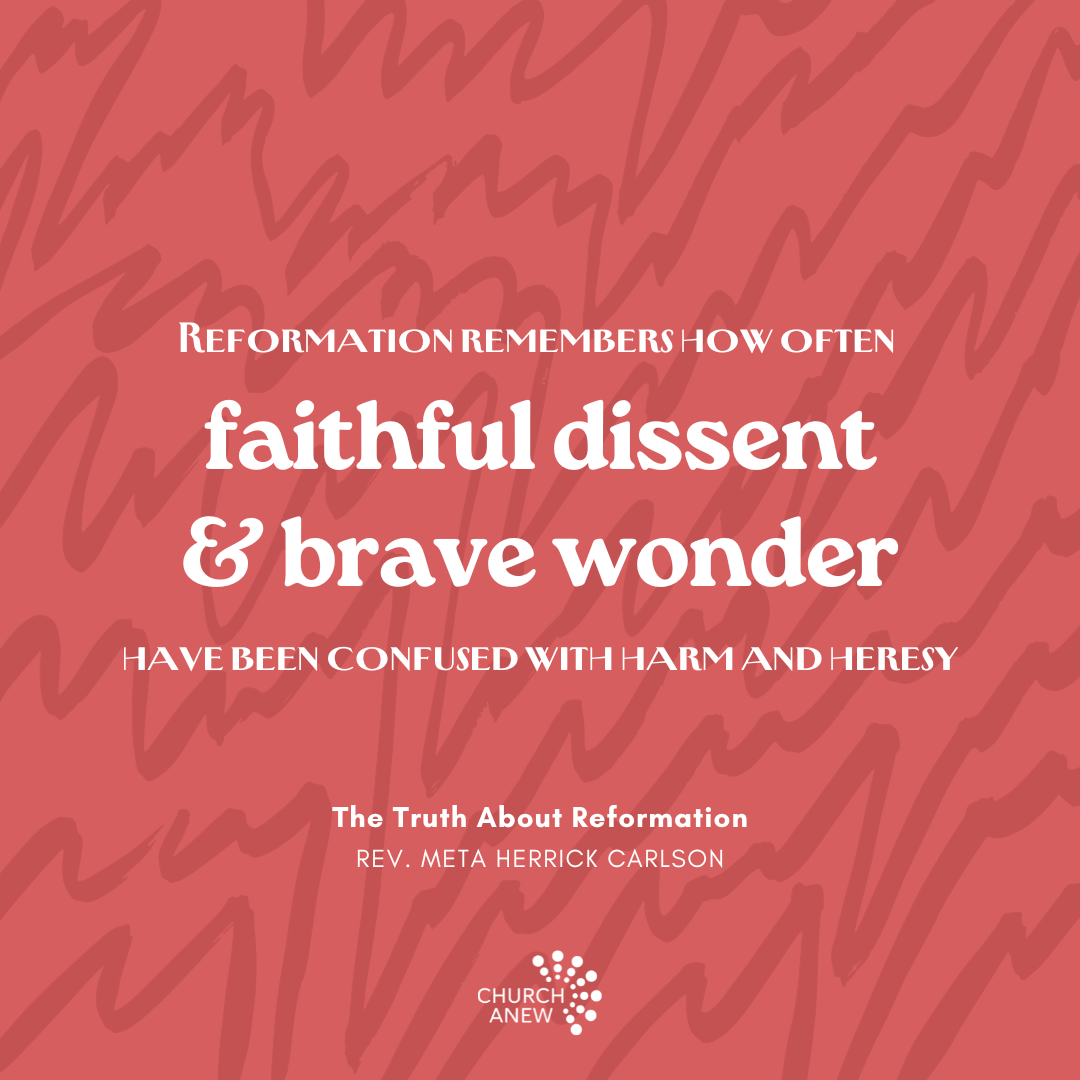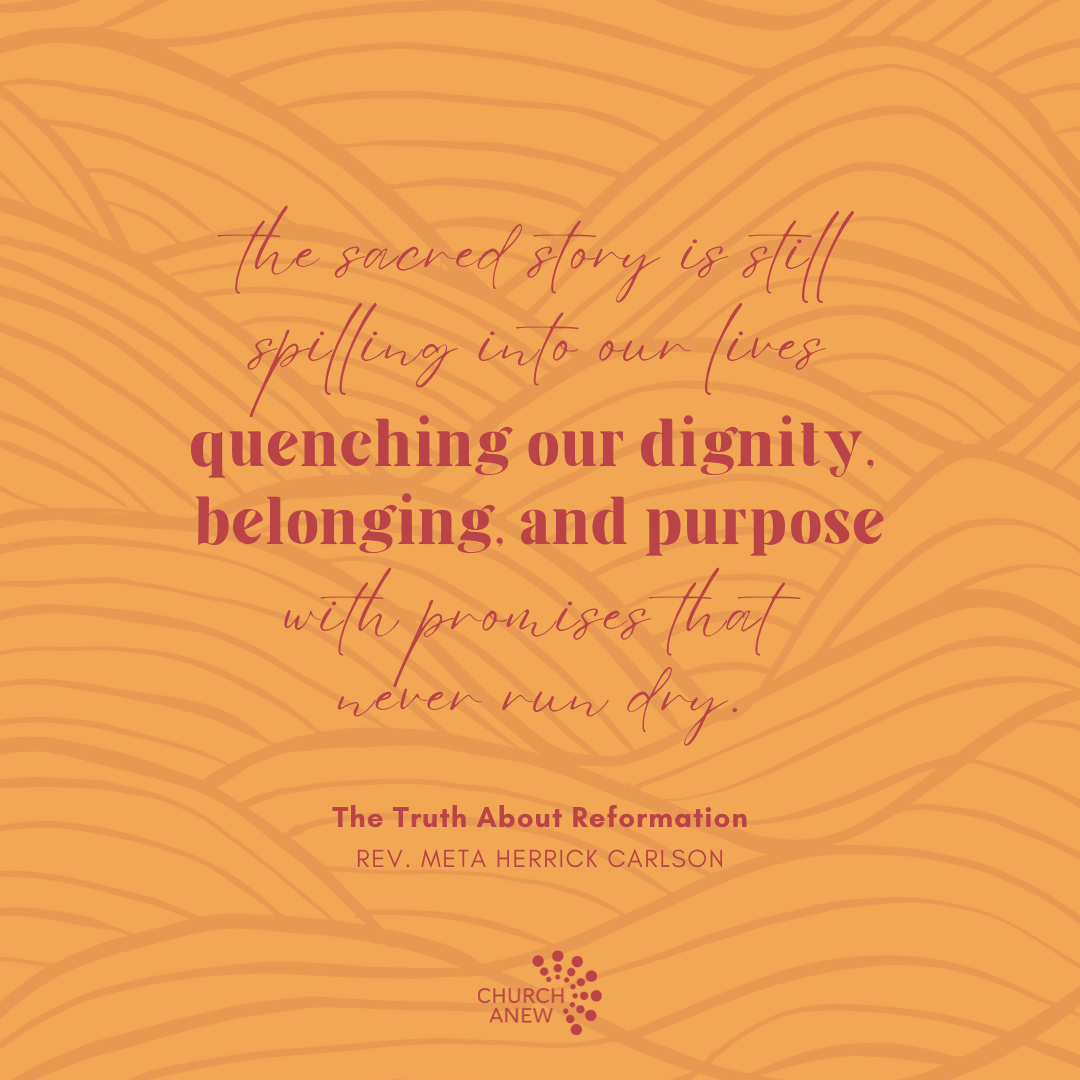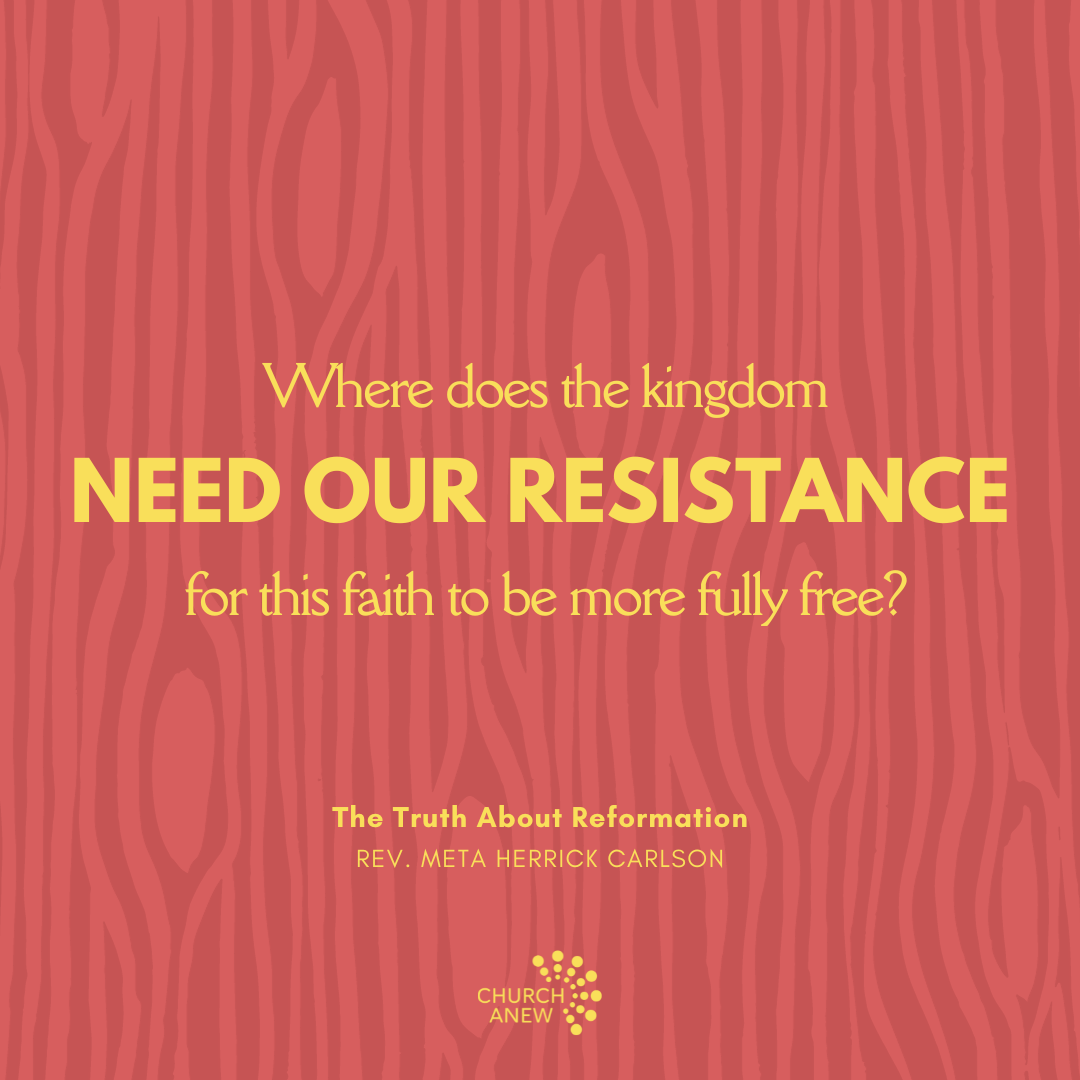"The Truth About Reformation"
Photo by Wim van 't Einde on Unsplash
As we enter October and prepare to celebrate the Reformation once again, we wanted to share the following poem by Pastor Meta Herrick Carlson.
The Truth about Reformation
Reformation rumbles
when we try to make sense
of the world around us,
when we go looking
for clarity and comfort
in things we already know,
traditions and tools we already have
and still, we find them lacking.
Reformation remembers
how often faithful dissent
and brave wonder have been
confused with harm and heresy,
a theology of transformation
conditioned to stay fixed in place
and devoted to more of the same,
a kingdom compromised and captive.
Reformation refuses
to hustle and borrow and earn
what God has declared generous,
a gift beyond mortal measure
so wild and free it disrupts everything
that aims to contain and conserve
what is meant to keep moving,
an ancient blessing and truth about love.
Story-ing the People
Once upon a time there was a man
who tried to save himself, to earn
God’s pleasure and life after death.
If anyone could do it, he could.
Martin was a monk and knew the law.
He spent his days in study and prayer,
tucked away from much of society
to focus on higher, spiritual things.
But the harder he aimed at perfect,
the more lonely and lost he felt,
the more he searched and questioned
his own motivations and God’s, too.
Could there be another way,
a wider way to fear and love God,
one that honored his humanity
instead of resenting it so much?
What would it look like to entrust
his eternal salvation to God in Christ Jesus
and to live like he’d been set free,
to be honest and beloved and whole?
Martin wrote a catechism for parents,
so families could practice faith together
at church and at home, in daily life
and everywhere God is with us.
When scripture gets in the hands of the people,
reformation rekindles and sparks
from embers of a faith that always finds
new words and ways and will for asking:
What does that mean?
Where did it take place?
Who did that law benefit or harm?
How does that story transcend time?
Why does any of this matter today?
It’s a tool to use, a lever to pull,
a lens to help us see that God delights
in high altars and dinner tables,
grand sanctuaries and hearths at home.
It’s a reminder the sacred story
is still spilling into our lives, quenching
our dignity, belonging, and purpose
with promises that never run dry.
Reformation rumbles
not just once long ago, but whenever
the people start asking and
keep asking and can’t stop asking:
What serves our own piety
and what serves the living God?
What truths are contained and captive
and who benefits from keeping them small?
Where does the kingdom need our resistance
for this faith to be more fully free?
What is passing away
and what is being made new?





